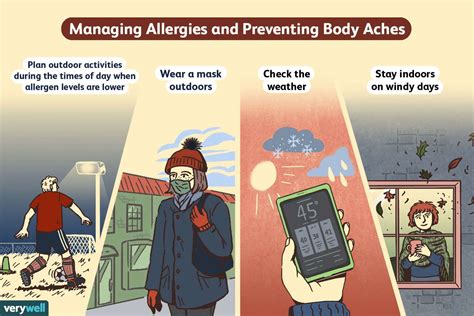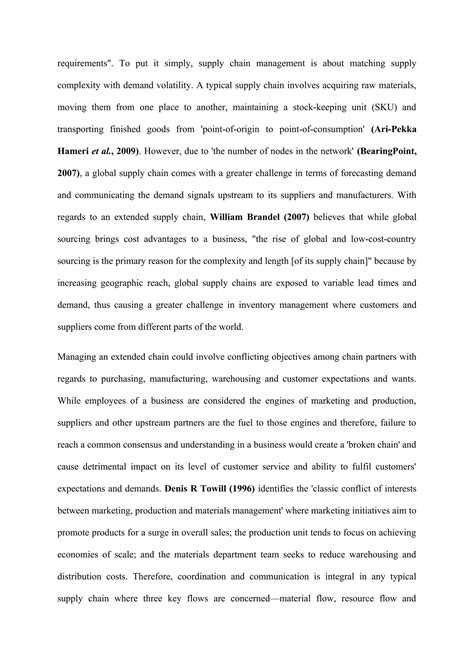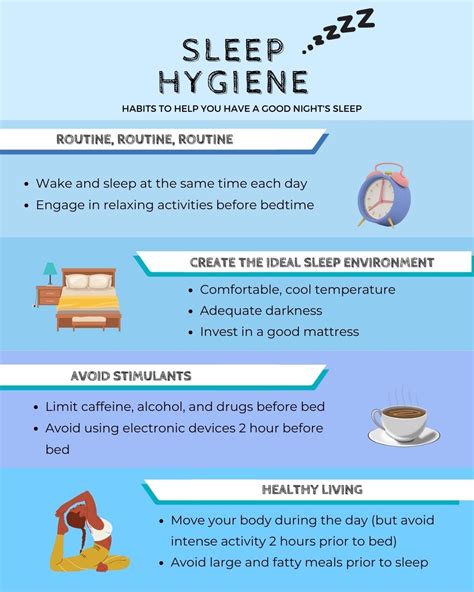Intro
Body aches and fatigue are common complaints that can significantly impact an individual's quality of life. These symptoms can be caused by a variety of factors, including stress, lack of sleep, poor diet, and underlying medical conditions. When left unaddressed, body aches and fatigue can lead to decreased productivity, strained relationships, and a weakened immune system. It is essential to understand the underlying causes of these symptoms and explore effective relief strategies to regain optimal health and well-being.
Body aches can manifest in different forms, such as muscle soreness, joint pain, and headaches. These aches can be acute or chronic, and their severity can range from mild to debilitating. Fatigue, on the other hand, is characterized by a lack of energy, motivation, and mental clarity. It can be physical, emotional, or mental, and can interfere with daily activities, work, and social interactions. The combination of body aches and fatigue can be particularly challenging, as it can create a vicious cycle of discomfort, inactivity, and decreased overall health.
Understanding the underlying causes of body aches and fatigue is crucial in developing effective relief strategies. Some common causes of these symptoms include poor posture, muscle imbalances, and inadequate nutrition. Other factors, such as stress, anxiety, and depression, can also contribute to body aches and fatigue. Additionally, certain medical conditions, such as fibromyalgia, arthritis, and hypothyroidism, can cause chronic body aches and fatigue. By identifying the underlying causes of these symptoms, individuals can take the first step towards relief and recovery.
Understanding Body Aches

Body aches can be caused by a variety of factors, including muscle strain, poor posture, and inadequate nutrition. Muscle strain can occur due to overuse, injury, or poor muscle tone. Poor posture can lead to muscle imbalances, which can cause aches and pains in the neck, back, and joints. Inadequate nutrition can also contribute to body aches, as a diet lacking essential nutrients can lead to muscle weakness, fatigue, and decreased immune function. Other factors, such as stress, anxiety, and depression, can also contribute to body aches, as they can cause muscle tension, inflammation, and decreased pain tolerance.
Types of Body Aches
There are several types of body aches, including muscle soreness, joint pain, and headaches. Muscle soreness can occur after exercise, injury, or overuse, and can range from mild to severe. Joint pain can be caused by arthritis, injury, or poor joint alignment, and can affect any joint in the body. Headaches can be caused by tension, stress, or underlying medical conditions, and can range from mild to debilitating. Understanding the type and cause of body aches is essential in developing effective relief strategies.Understanding Fatigue

Fatigue is a common complaint that can significantly impact an individual's quality of life. It can be physical, emotional, or mental, and can interfere with daily activities, work, and social interactions. Fatigue can be caused by a variety of factors, including lack of sleep, poor nutrition, and underlying medical conditions. Other factors, such as stress, anxiety, and depression, can also contribute to fatigue, as they can cause decreased energy, motivation, and mental clarity. Additionally, certain medical conditions, such as anemia, hypothyroidism, and chronic fatigue syndrome, can cause chronic fatigue.
Types of Fatigue
There are several types of fatigue, including physical, emotional, and mental fatigue. Physical fatigue can be caused by lack of sleep, poor nutrition, and underlying medical conditions. Emotional fatigue can be caused by stress, anxiety, and depression, and can lead to decreased motivation, mood disturbances, and decreased emotional well-being. Mental fatigue can be caused by cognitive overload, lack of mental stimulation, and underlying medical conditions, and can lead to decreased concentration, memory, and mental clarity. Understanding the type and cause of fatigue is essential in developing effective relief strategies.Relief Strategies for Body Aches and Fatigue

There are several relief strategies for body aches and fatigue, including exercise, nutrition, stress management, and sleep hygiene. Exercise can help alleviate body aches by improving muscle tone, reducing muscle imbalances, and increasing endorphins. Nutrition can help alleviate body aches and fatigue by providing essential nutrients, reducing inflammation, and supporting immune function. Stress management techniques, such as meditation, yoga, and deep breathing, can help reduce stress, anxiety, and depression, which can contribute to body aches and fatigue. Sleep hygiene practices, such as maintaining a consistent sleep schedule, creating a relaxing sleep environment, and avoiding stimulants before bedtime, can help improve sleep quality and reduce fatigue.
Exercise and Body Aches
Exercise is an effective relief strategy for body aches, as it can improve muscle tone, reduce muscle imbalances, and increase endorphins. Gentle exercises, such as yoga, Pilates, and stretching, can help alleviate body aches by improving flexibility, reducing muscle tension, and increasing range of motion. More intense exercises, such as cardio and strength training, can help improve muscle tone, reduce inflammation, and increase endorphins. However, it is essential to listen to the body and avoid overexertion, as this can exacerbate body aches and fatigue.Nutrition and Body Aches

Nutrition plays a crucial role in alleviating body aches and fatigue, as a diet lacking essential nutrients can lead to muscle weakness, fatigue, and decreased immune function. A balanced diet that includes plenty of fruits, vegetables, whole grains, lean proteins, and healthy fats can help provide essential nutrients, reduce inflammation, and support immune function. Additionally, certain nutrients, such as omega-3 fatty acids, vitamin D, and magnesium, have anti-inflammatory properties and can help alleviate body aches and fatigue.
Stress Management and Body Aches
Stress management is an essential relief strategy for body aches and fatigue, as stress, anxiety, and depression can contribute to muscle tension, inflammation, and decreased pain tolerance. Stress management techniques, such as meditation, yoga, and deep breathing, can help reduce stress, anxiety, and depression, and can alleviate body aches and fatigue. Additionally, engaging in relaxing activities, such as reading, listening to music, and spending time in nature, can help reduce stress and promote relaxation.Sleep Hygiene and Body Aches

Sleep hygiene is an essential relief strategy for body aches and fatigue, as poor sleep quality can exacerbate these symptoms. Maintaining a consistent sleep schedule, creating a relaxing sleep environment, and avoiding stimulants before bedtime can help improve sleep quality and reduce fatigue. Additionally, practicing relaxation techniques, such as progressive muscle relaxation and mindfulness meditation, can help promote relaxation and improve sleep quality.
Conclusion and Next Steps
In conclusion, body aches and fatigue are common complaints that can significantly impact an individual's quality of life. Understanding the underlying causes of these symptoms and exploring effective relief strategies can help alleviate body aches and fatigue and promote optimal health and well-being. By incorporating exercise, nutrition, stress management, and sleep hygiene into daily life, individuals can take the first step towards relief and recovery. It is essential to consult with a healthcare professional to determine the underlying cause of body aches and fatigue and to develop a personalized relief plan.What are the common causes of body aches and fatigue?
+Body aches and fatigue can be caused by a variety of factors, including stress, lack of sleep, poor diet, and underlying medical conditions.
How can exercise help alleviate body aches and fatigue?
+Exercise can help alleviate body aches and fatigue by improving muscle tone, reducing muscle imbalances, and increasing endorphins.
What are some effective stress management techniques for body aches and fatigue?
+Effective stress management techniques for body aches and fatigue include meditation, yoga, deep breathing, and progressive muscle relaxation.
We hope this article has provided you with valuable information and insights into body aches and fatigue relief. If you have any further questions or concerns, please do not hesitate to comment below. Share this article with your friends and family to help them understand the importance of addressing body aches and fatigue. Take the first step towards relief and recovery today!
